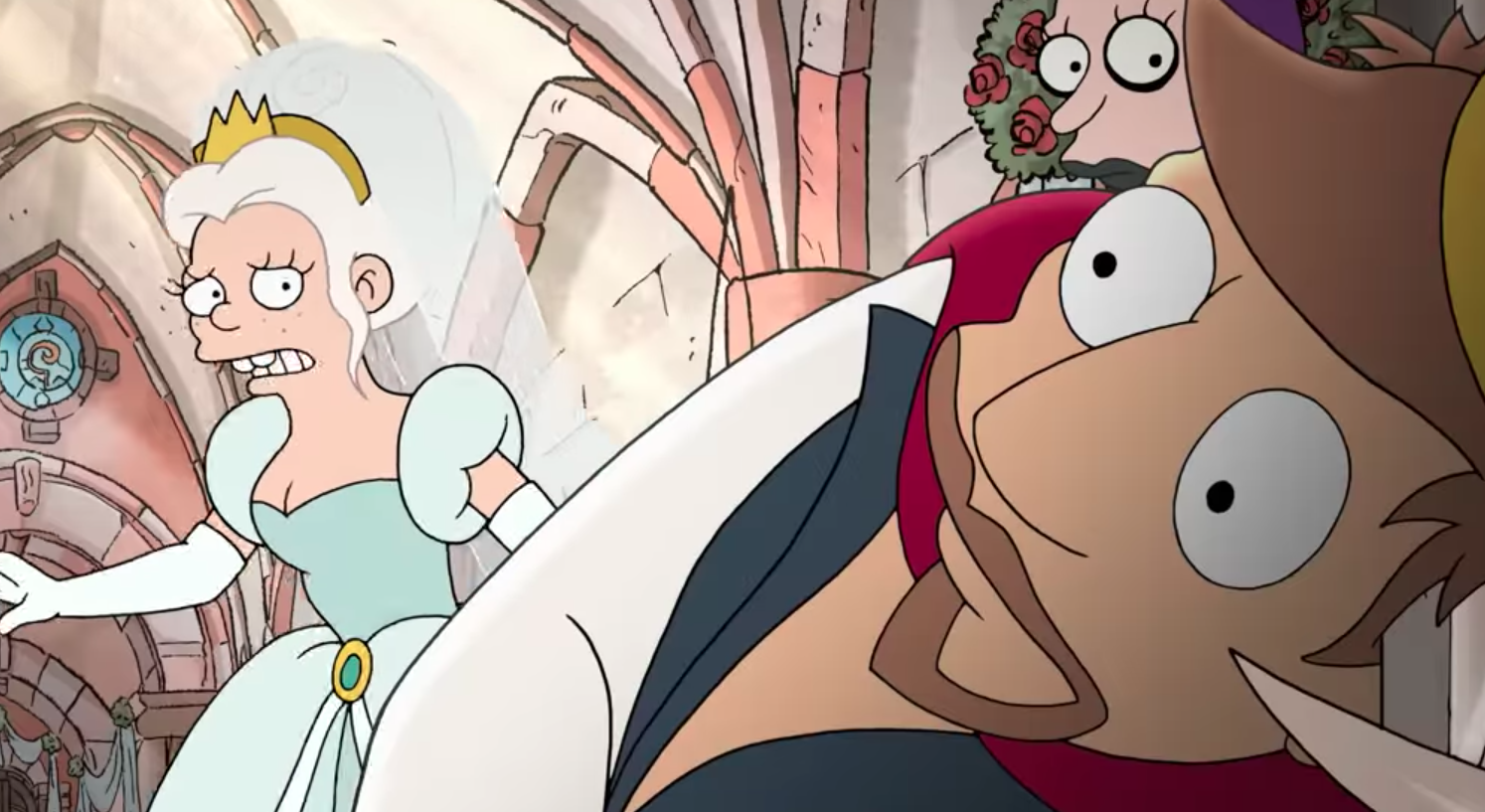Netflix is giving Game of Thrones a run for its money with its newest animated series, Disenchantment. The ten-part series, produced by The Simpsons and Futurama creator Matt Groening, takes place in a medieval alternate universe decimated by plague and destruction.
With Disenchantment, Groening puts 21st-century problems in an old-world context. From hookup culture, to chastity and binge drinking, Disenchantment serves up relatable and smart social commentary with a medieval twist.
For an animated series, Disenchantment has more depth and meaning than Family Guy and American Dad! combined. And unlike other animated comedies, Disenchantment knows to quit when it’s ahead. Throwaway jokes are fleeting; Disenchantment steers clear of tedious extended sequences like Family Guy‘s famous chicken fight scenes.
Disenchantment follows Princess Tiabeanie (Abbi Jacobson of Broad City), the rebellious teenage daughter of overbearing King Zøg. While Disenchantment looks like Groening’s other series, the characters are more complex and likable.
[Read more: ‘Broad City’ is back and better than ever]
The princess, also known as Bean, has a foul mouth, a serious drinking problem and an irrepressible free spirit. She’s a classic wild child, but she has depth, edge and a feminist character arc. She runs around in pants, ruins her arranged marriage and seeks random hookups for the sole purpose of fulfillment.
Each episode follows Bean as she upsets her father with another drunken escapade or costly adventure with her friends. The adventures are absurd and unrealistic, but highlight a very real dynamic; Bean is sarcastic and awkward because she’s been cooped up her whole life. As the series progresses, the detrimental effect of this lack of attention becomes apparent.
Character dynamic is one of the series’ strengths. There’s a refreshing powerplay between Elfo, Bean’s runaway elf friend (Nat Faxon), and Luci, her personal demon (Eric Andre).
[Read more: ‘The Eric Andre Show,’ an exercise in mindless madness, charts a course of its own]
The two characters put a twist on the stereotypical angel-and-demon dynamic. Elfo aims to make Bean do good, but he’s insecure, innocent, and entirely self-conscious about his capabilities. Unlike most angelic figures, Elfo is corruptible, flawed and often lets chaos ensue when he succumbs to peer pressure.
On the other hand, Luci represents an overpowering evil influence that — like a stereotypical older brother — peer pressures Bean into committing the unthinkable. The two characters feed off of one another in an enjoyable and refreshing way.
Rarely in an animated comedy series do people find continuity and stability. But in Disenchantment, story arcs flow through each episode and past adventures are mentioned in conversations between characters. Somehow Disenchantment is one of those series that manages to cast a spell on viewers.
3/4 Shells



